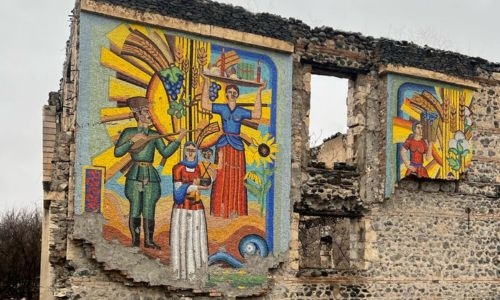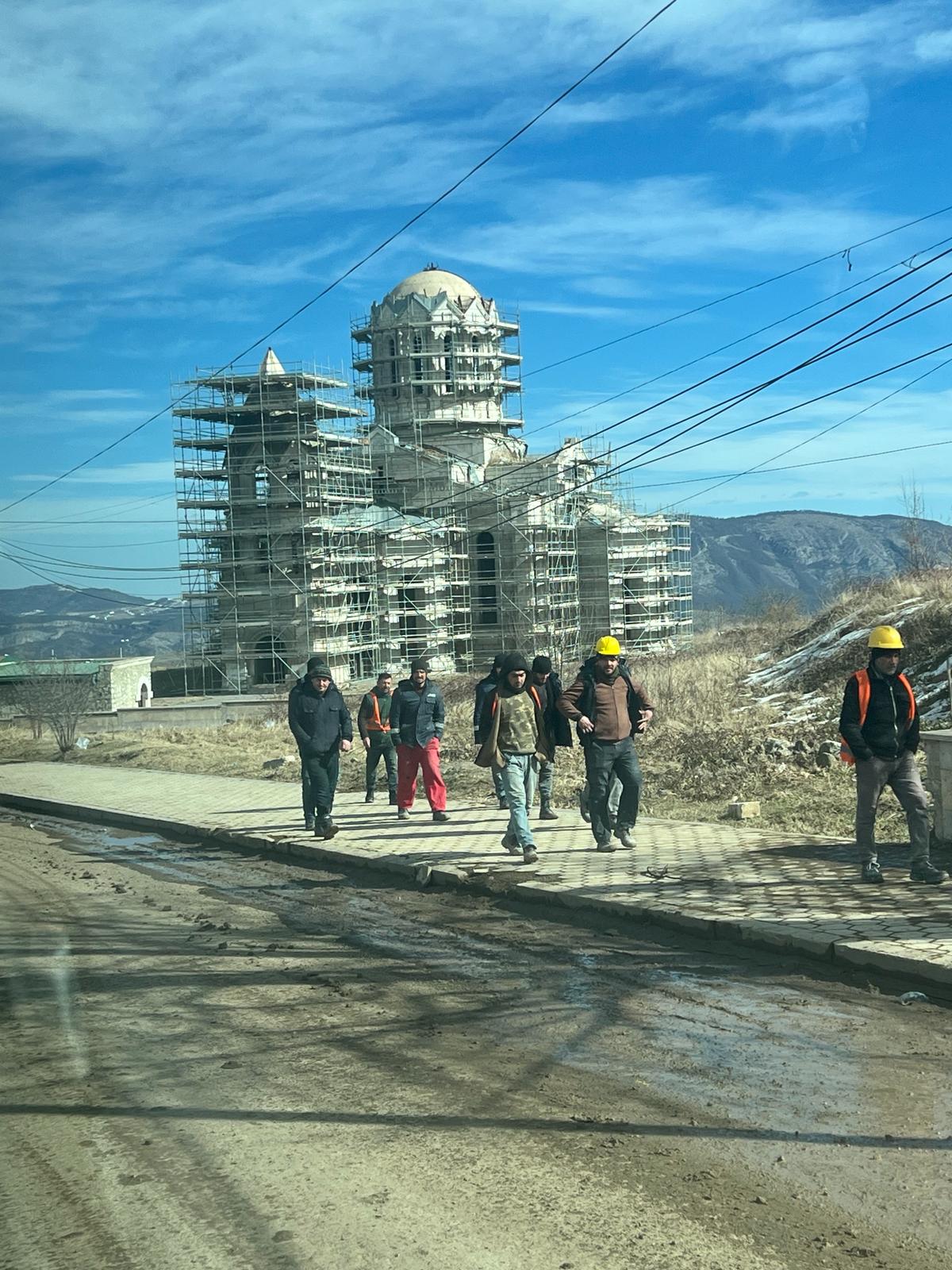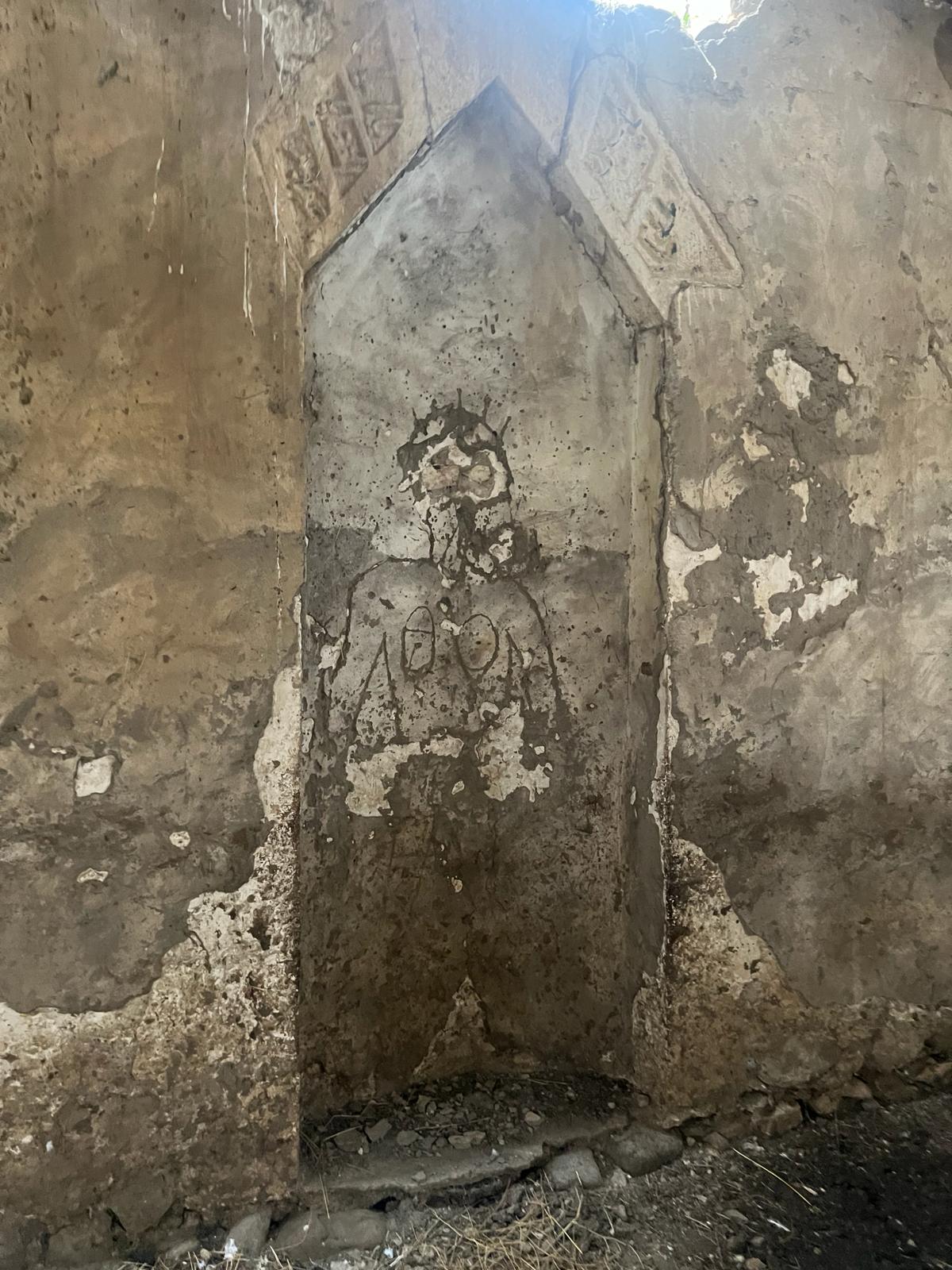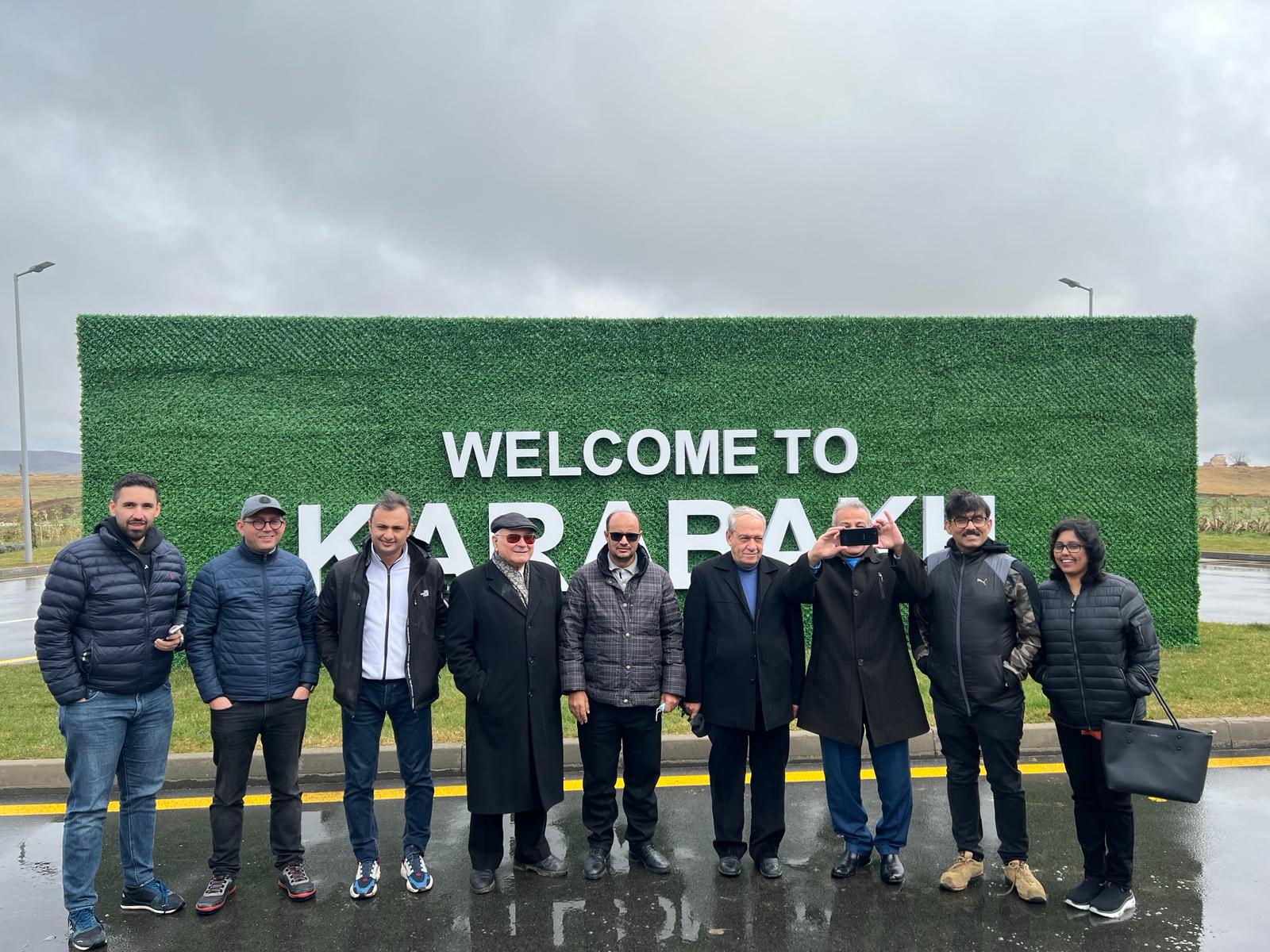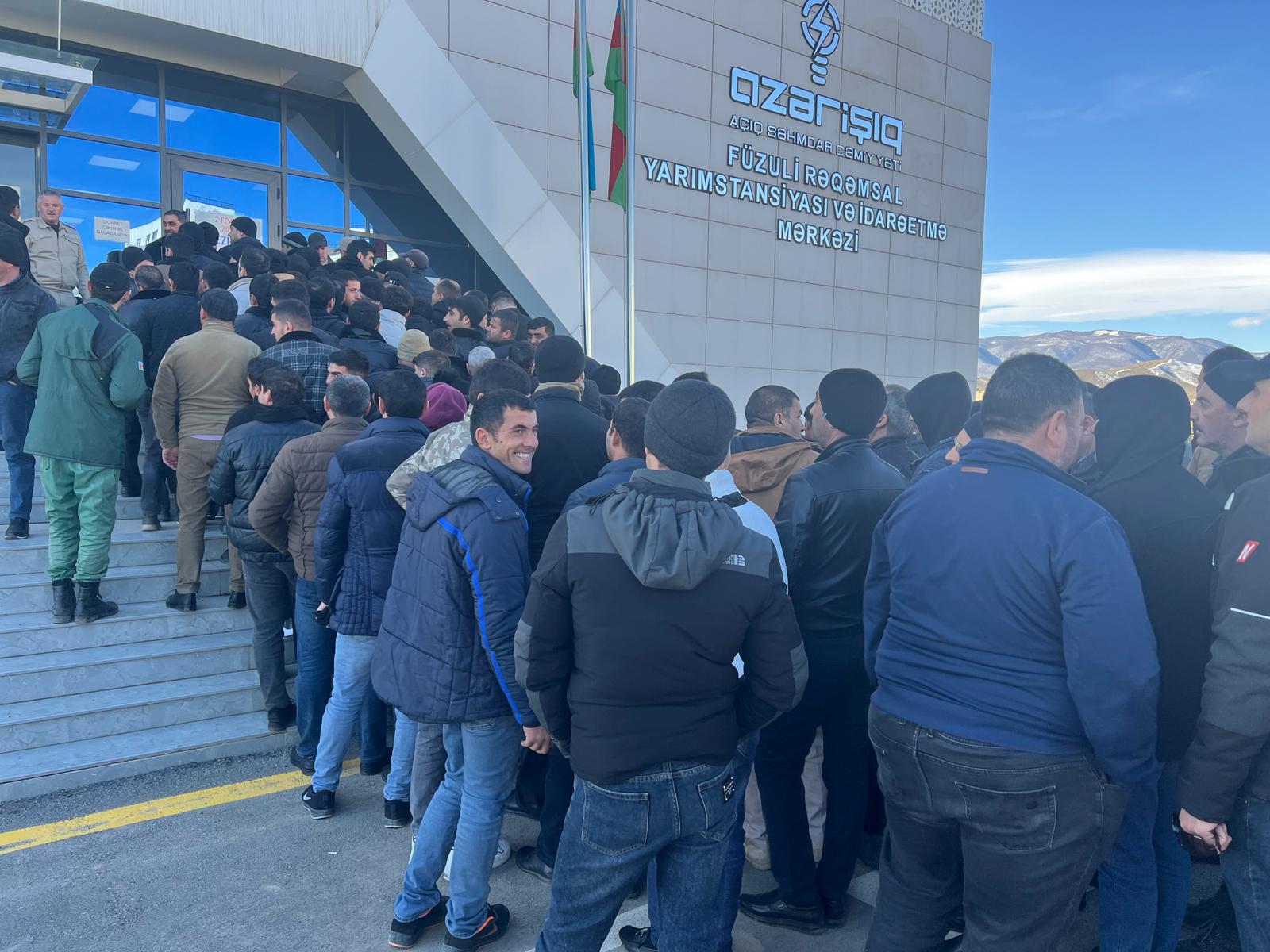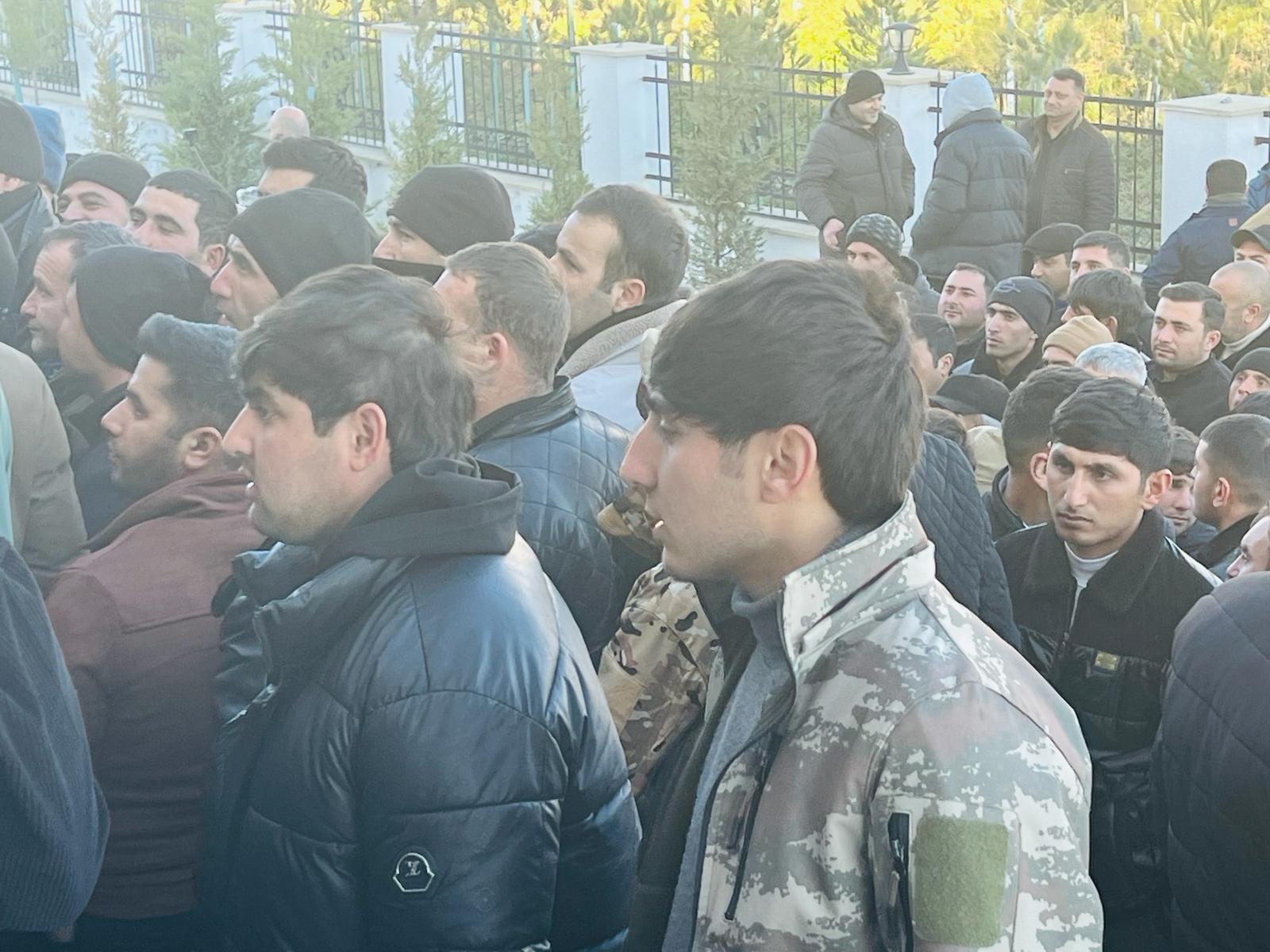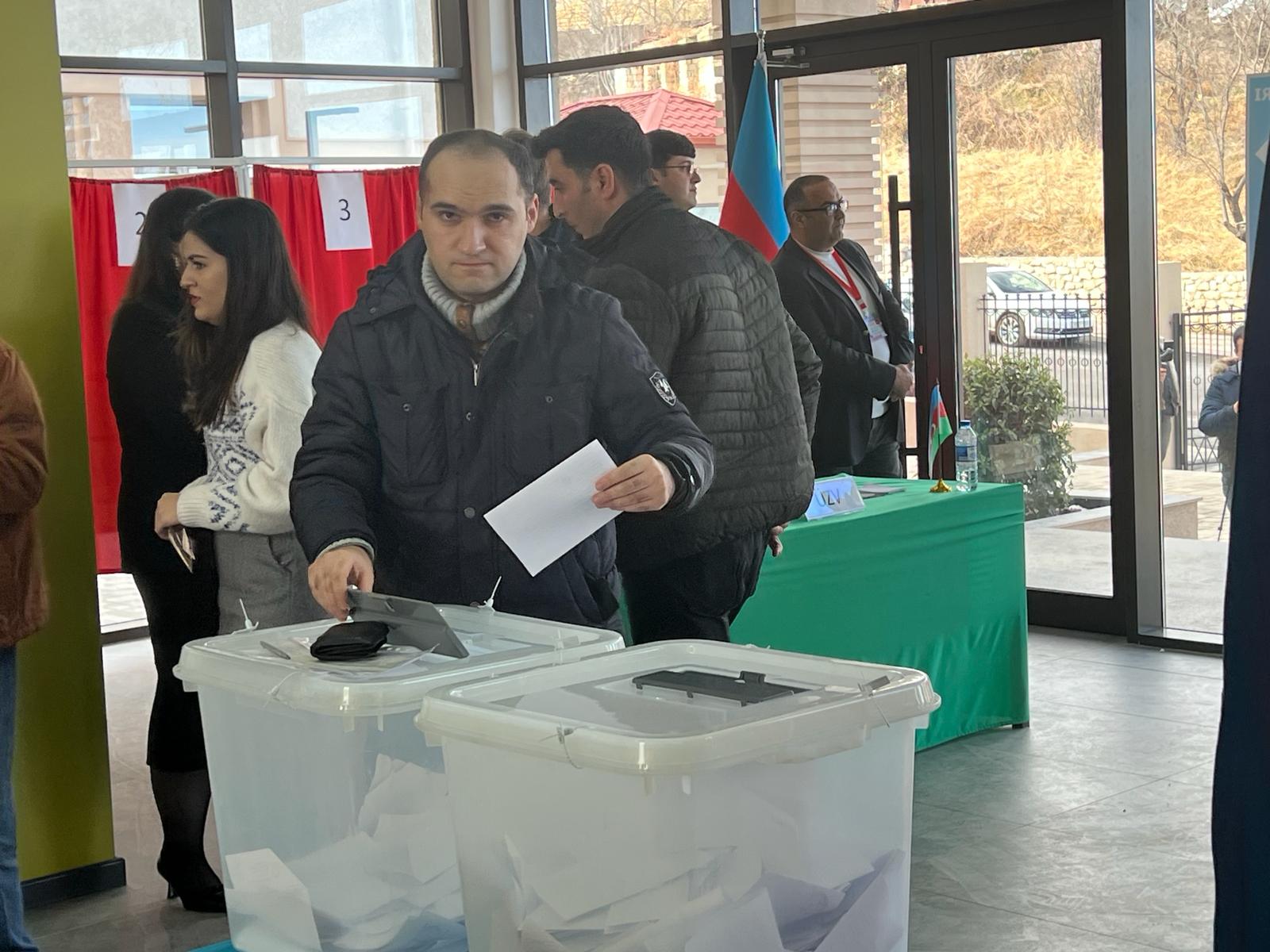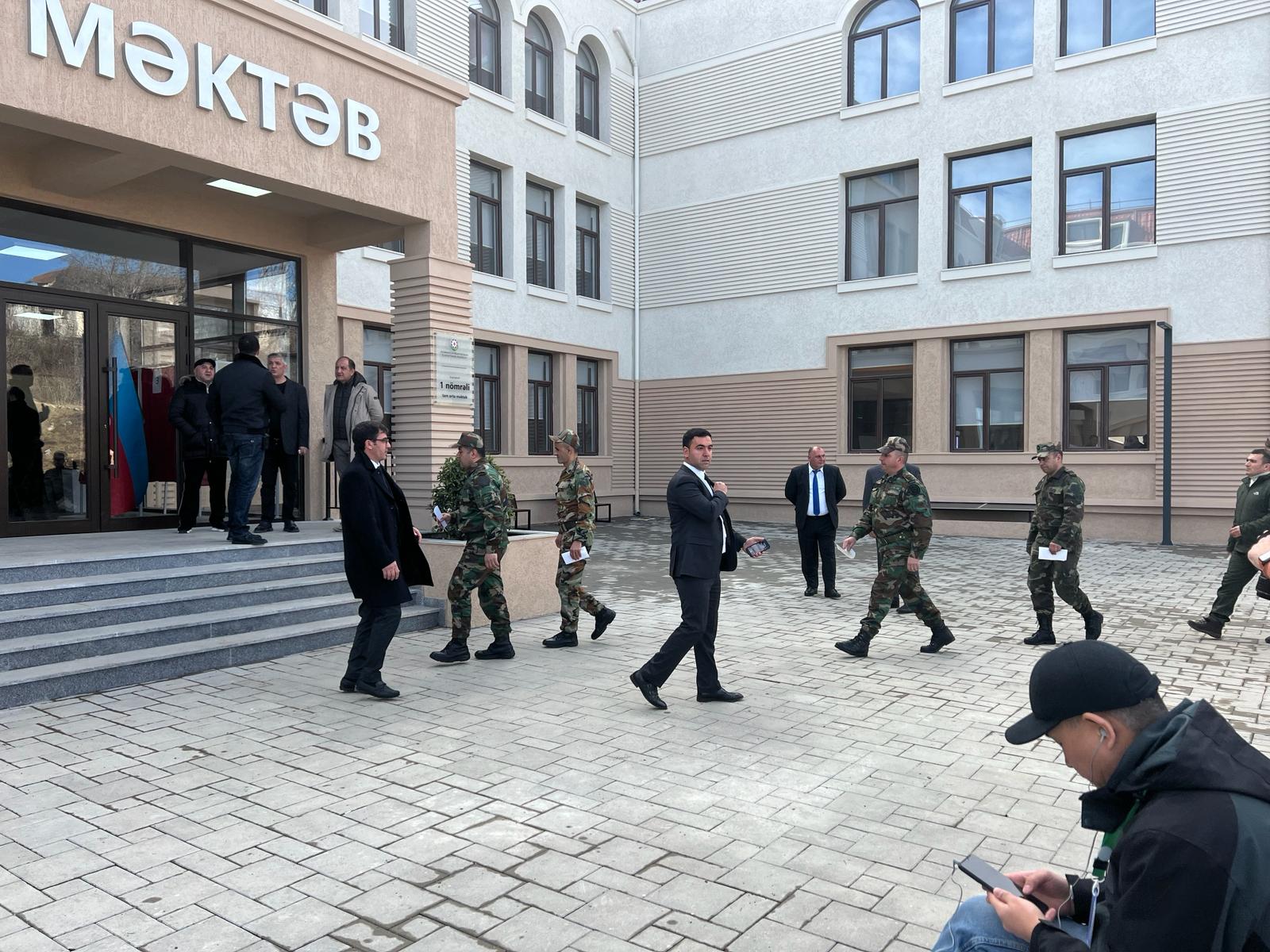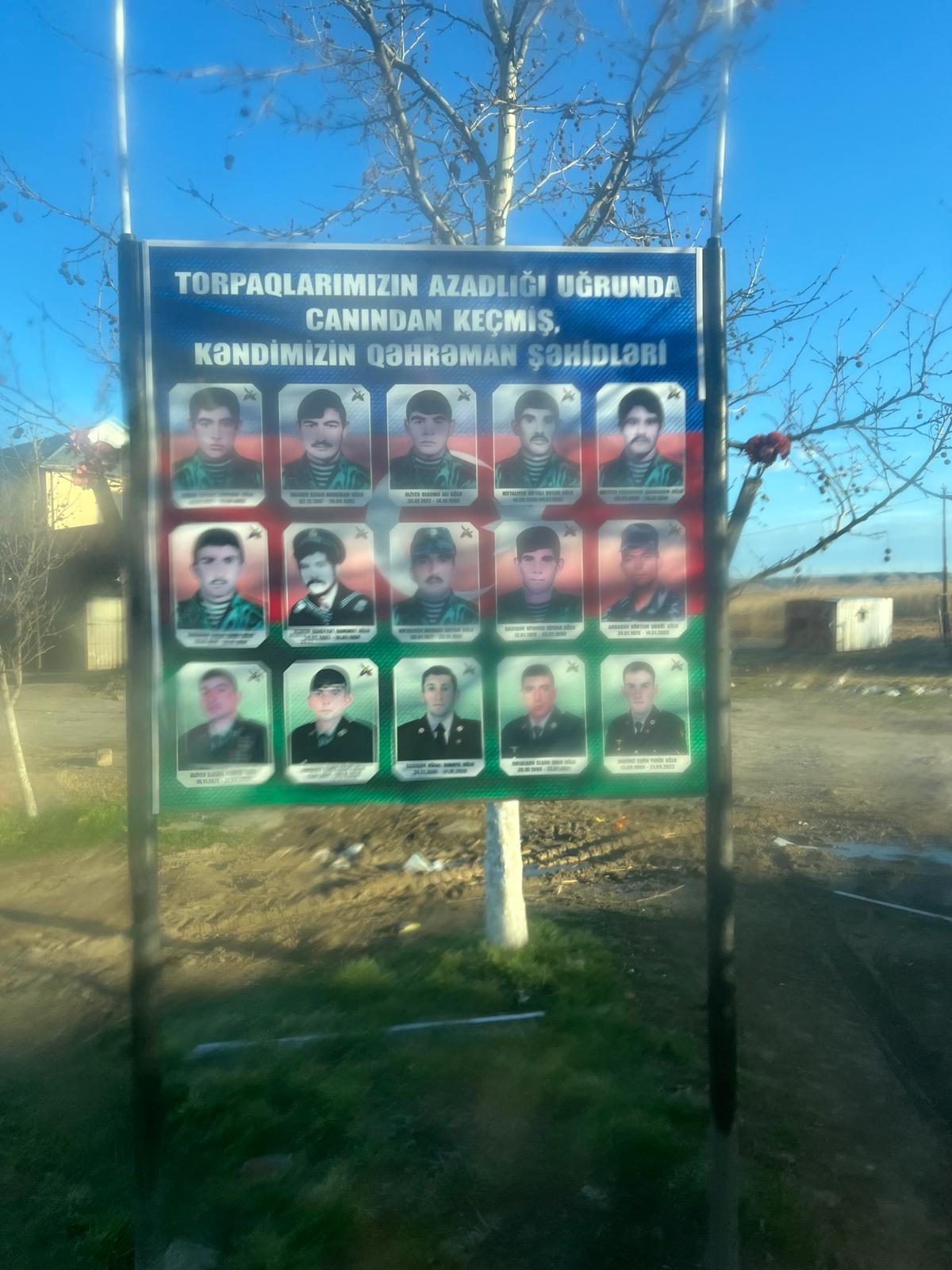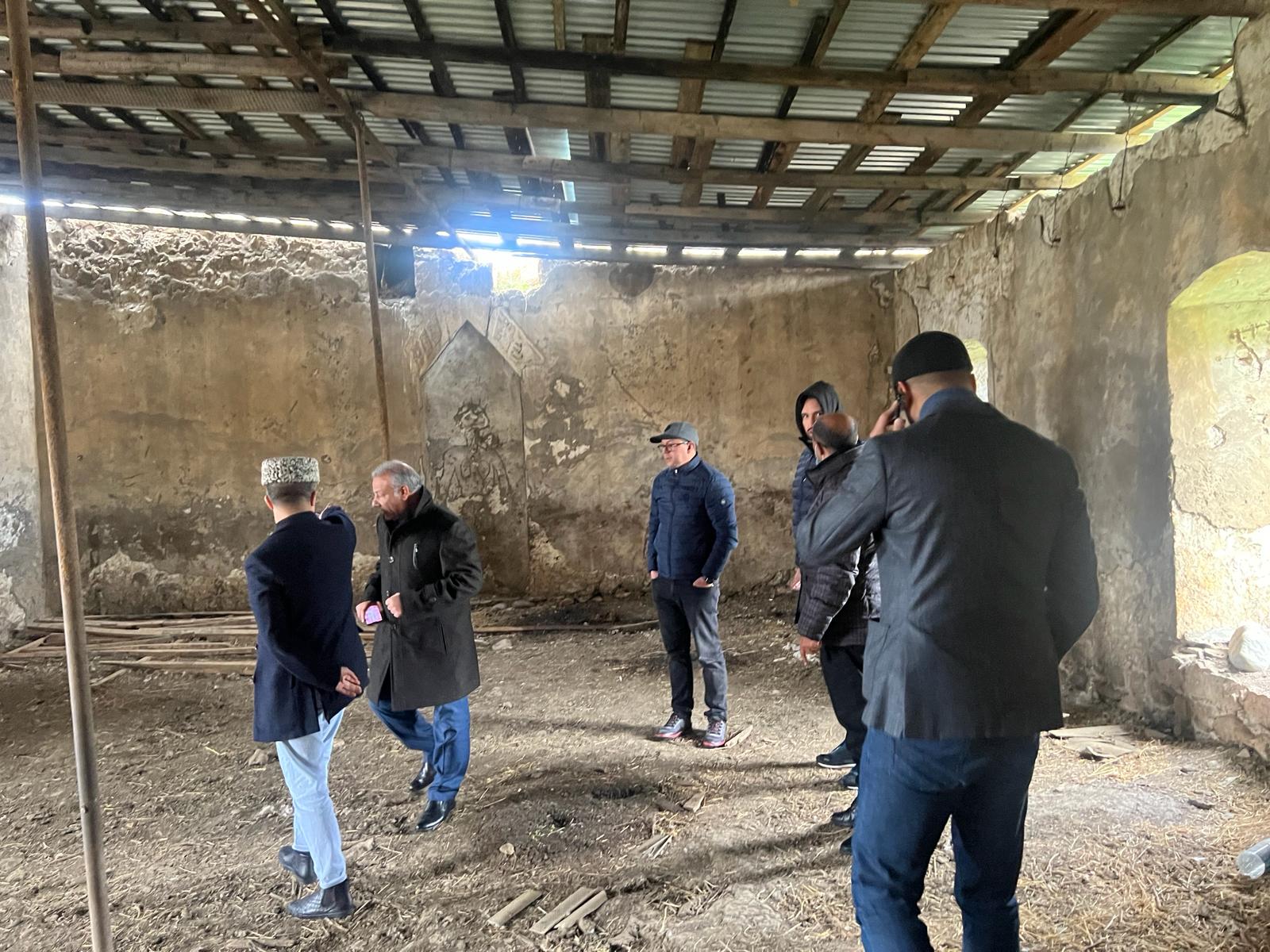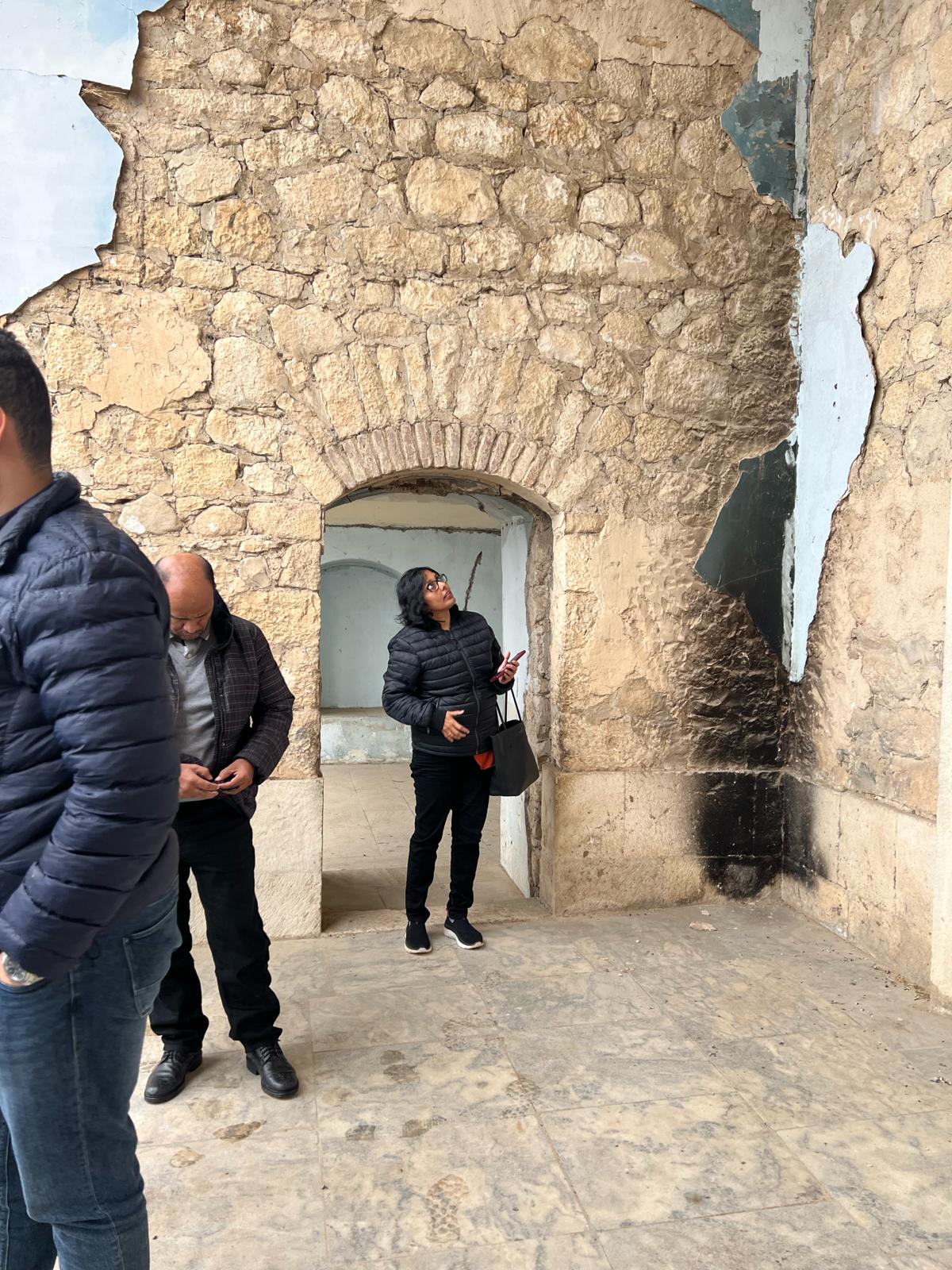From Ruin to Renewal – A report by P. Unnikrishnan from Azerbaijan
By P. Unnikrishnan
As I traversed the rubble-strewn pathways amidst the remnants of once-grand structures, our guide pointed out what used to be the heart of their city centre.
Peering into the desolate expanse, all that met my gaze were the shattered fragments of ancient towers, now reduced to mere shadows of their former glory.
Pressing onward, we approached another edifice bearing faint traces of its former identity as a mosque.
Stepping inside, the guide directed my attention to a wall adorned with a disturbing array of images, predominantly depicting nudity and derogation.
He sadly explained that this was once a space where livestock were sheltered during conflict.
After an arduous journey by van, our guide halted our progress and gestured towards a cemetery. After surveying the site, it became apparent that many of the graves had been defiled.
Armenian soldiers, driven by greed, had pillaged these resting places, not even sparing the dignity of the deceased in their quest for valuables, including golden teeth. The anguish in our guide’s voice was palpable.
These territories remain fraught with danger; the liberated zones are riddled with landmines. While we possess maps indicating their locations, their accuracy could be more reliable.
It may be several more years before this region can be deemed entirely safe from the perils that lurk beneath its surface.
I was in the Karabakh Region, one of the areas liberated from Armenia by Azerbaijan, to cover the presidential elections held on February 7th.
Despite the biting cold wind and snow, I observed a significant turnout of people gathering in front of the polling booth before it was open to the public for voting.
As part of the media delegation, we were free to document all the procedures inside the polling booths.
The ballot boxes were securely placed in transparent containers, and each voter was provided with a private space to cast their votes with complete confidentiality.
I noticed many young voters participating for the first time, displaying a mix of anxiety and passion.
When I asked a few voters about his predictions for the election results, they expressed confidence in the incumbent president’s re-election, describing him as a hero who defended the country during the war and successfully diversified the economy from relying on oil.
Field Reporting
Having witnessed these historic elections firsthand, including in areas recently liberated from Armenia, particularly Karabakh, I had a unique insight into the significance of this electoral process.
During a press briefing in Baku, Mazahir Panahov, chairman of the Central Election Commission, provided insights into the meticulous procedures and arrangements for the electoral process. I have visited the Karabakh and Susa regions, where the voters’ names were listed on a board in front of their polling booths.
Aliyev’s Resounding Victory
Incumbent President Ilham Aliyev emerged victorious with a resounding 92.1% of the votes, as announced by the country’s Central Election Commission (CEC).
His closest rival, independent candidate Zahid Oruj, trailed significantly with 2.17% of the vote, while other contenders garnered less than 2% each. All candidates graciously acknowledged Aliyev’s victory without contestation.
Nationwide Elections
The significance of the 2024 presidential election lies in its unprecedented scope. For the first time in Azerbaijan’s history, elections were conducted across the entire territory, including the recently liberated Karabakh region. This monumental shift underscores the nation’s determination to assert sovereignty over reclaimed territories and integrate them into the electoral process.
International Recognition: Fair and Transparent
International observers lauded the elections as fair and transparent, with a high voter turnout indicative of widespread public interest.
Over 90,000 observers monitored the electoral process, including representatives from 72 international organisations spanning 89 countries.
Additionally, 26 polling stations were established in Karabakh, symbolising the integration of previously contested territories into the electoral framework.
Media Coverage: Unrestricted Access
The media coverage of the elections was robust, with reporters from various countries invited to witness the proceedings. Journalists were granted unrestricted access to polling booths, allowing them to observe and interact with voters freely.
The overwhelming sentiment among voters supported President Aliyev, whom they viewed as the hero who preserved their nation’s pride through victory in war.
Reconstruction and Advancement
President Aliyev’s overwhelming triumph underscores the unwavering support and confidence in his stewardship. While strides have been made in the peace accord with Armenia, unresolved matters linger, notably concerning amendments to Armenia’s constitution about the rights of Karabakh residents.
Azerbaijan is steadfast in its call for direct negotiations to address these lingering issues.
Amidst the backdrop of reconstruction, the landscape is transforming with the emergence of new towers, including schools and residential complexes, in the liberated territories once occupied by Armenia.
The constant hum of construction activities signifies a nation in the throes of rejuvenation.
Tourist Destination
Azerbaijan’s allure is undeniable—a tapestry of pristine landscapes, elegant architecture, bountiful harvests, and the warmth of its people render it a quintessential destination for discerning travellers, beckoning from afar, even from the shores of Bahrain.
Though my narrative is woven from Azerbaijan’s perspective, this nation’s trajectory is unmistakably one of promise and prosperity, propelled by its resolute populace, visionary leadership, and unwavering economic resilience.”
Related Posts

